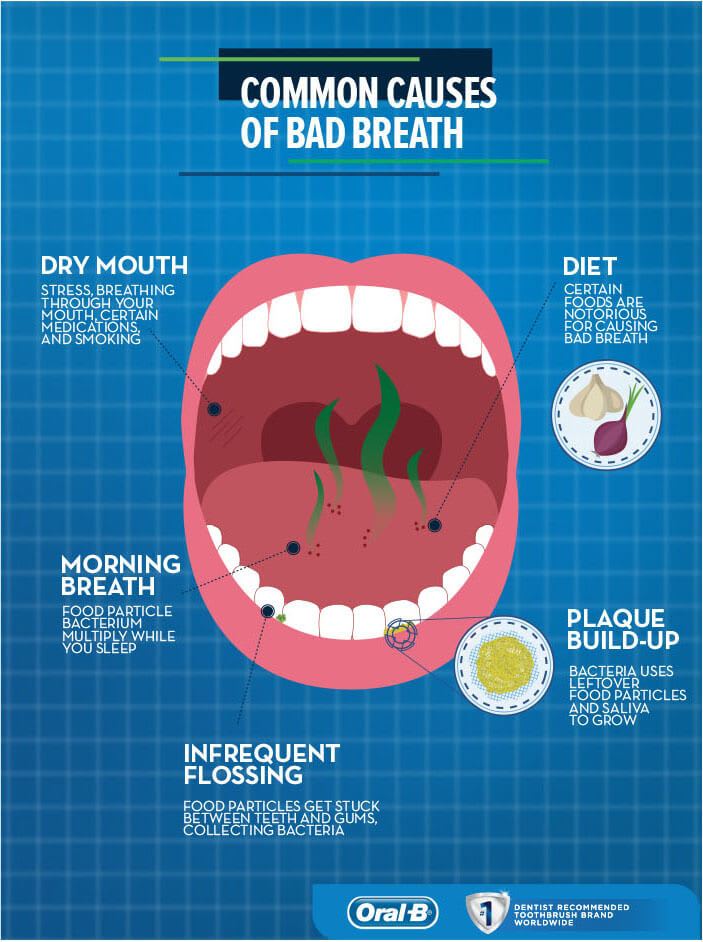Have you ever wondered why your breath still smells bad even after brushing? It can be quite frustrating to put in the effort of maintaining your oral hygiene routine and still find yourself hesitating to engage in close conversations. You’re not alone in this, and understanding the reasons behind persistent bad breath can help you find more effective solutions.
Go Here Now & Discover The Sugar Hack (Use This Today)
Understanding Bad Breath
Bad breath, or halitosis, can be caused by a variety of factors. It’s essential to first grasp what contributes to this problem before we can successfully address it.
What is Halitosis?
Halitosis refers to the unpleasant odor emanating from the mouth, which is often characterized by a foul-smelling breath. It affects a significant portion of the population at some point in their lives and can be temporary or chronic. Knowing its root cause is crucial in selecting the correct remedy.
Common Causes of Bad Breath
To effectively combat bad breath, identifying its primary causes is essential. It could be due to dietary choices, oral hygiene practices, or even underlying medical conditions. Understanding what contributes to your bad breath will better equip you to tackle it effectively.
Oral Hygiene Practices
Despite regular brushing, ineffective oral hygiene techniques might contribute to bad breath. Failing to brush thoroughly, neglecting flossing, and skipping tongue cleaning can allow food particles and bacteria to build up, leading to an unpleasant odor.
Diet and Lifestyle Habits
Certain foods, such as garlic, onions, and spices, contribute to bad breath. Moreover, habits like smoking and excessive alcohol consumption further exacerbate the issue by increasing the presence of odor-causing bacteria in the mouth.
Medical Conditions
Underlying medical conditions, such as sinus infections, diabetes, or gastrointestinal reflux, can also lead to bad breath. It’s important to take note of any associated symptoms and consult a healthcare professional if your efforts to address halitosis do not yield results.
Proper Brushing Techniques
Using correct brushing techniques can significantly impact your breath’s freshness. Many people may not realize they are brushing improperly, which is why understanding and adopting proper methods is crucial.
The Right Toothbrush and Toothpaste
Selecting the appropriate toothbrush and toothpaste plays a vital role in maintaining fresh breath. Opt for a toothbrush with soft bristles and a size that comfortably fits your mouth. Fluoride toothpaste is generally recommended, but you may also consider toothpastes with added antibacterial agents for better breath control.
How to Brush Effectively
Effective brushing involves more than just scrubbing the teeth’s surfaces. Focus on:
- Duration: Brush for at least two minutes each session.
- Technique: Use gentle circular motions, ensuring that you reach all areas, including the inner, outer, and chewing surfaces of your teeth.
- Frequency: Brush twice daily.
Don’t Forget to Floss and Clean Your Tongue
Flossing daily removes food particles and plaque between teeth that brushing alone cannot reach. Additionally, cleaning your tongue is crucial, as it can harbor bacteria. Use a tongue scraper or gently brush your tongue to eliminate these odor-causing agents.

Odd “Sugar Hack” Fixes Bleeding Gums & Restores Your Smile
Role of Saliva in Maintaining Fresh Breath
Saliva naturally cleanses the mouth and prevents bacteria buildup, serving as an essential element in maintaining fresh breath.
What Contributes to Dry Mouth?
A condition known as xerostomia, or dry mouth, results from reduced saliva production. It can be caused by dehydration, certain medications, or medical conditions such as Sjögren’s syndrome. Managing dry mouth can significantly improve halitosis.
Ways to Increase Saliva Production
To stimulate saliva production, consider these strategies:
- Drink water regularly to stay hydrated.
- Chew sugar-free gum.
- Include more citrus fruits and other water-rich foods in your diet.
Diet’s Impact on Your Breath
Your diet is integral to the quality of your breath. Specific foods and beverages can either enhance or worsen oral odors.
Foods to Avoid
Certain foods are notorious for causing bad breath due to their strong odors or their potential to harbor bacteria. These include:
| Foods to Avoid | Reasons |
|---|---|
| Garlic and Onions | Contain sulfur compounds that linger. |
| Dairy Products | Can lead to an increase in oral bacteria. |
| Sugary Foods | Provide a food source for bacteria. |
Breath-Enhancing Foods
Conversely, some foods can help improve your breath by promoting saliva production and cleaning the mouth. These include:
- Apples
- Carrots
- Celery
- Green tea (contains antibacterial properties)

Health Conditions Related to Bad Breath
Sometimes, consistent bad breath can be linked to health conditions that require medical attention. Recognizing these can guide you towards relevant consultations with healthcare providers.
Sinus and Throat Infections
Infections in the sinuses or throat can lead to bad breath due to the presence of pus or post-nasal drip. Treating these infections can often resolve the issue.
Digestive Issues
Bad breath can sometimes be linked to digestive problems like acid reflux or lactose intolerance. In such cases, addressing the digestive problem often alleviates the symptoms of bad breath.
Diabetes and Breath
Diabetes can affect your breath because of higher blood sugar levels, resulting in a fruity or acetone-like scent. Managing blood sugar levels effectively can help control breath odor.
When to Consult a Professional
If you’ve implemented changes in your oral routine and lifestyle but still struggle with bad breath, it might be time to seek professional help.
Dental Visits for Persistent Bad Breath
A dentist can determine if there are underlying oral health issues such as cavities, gum disease, or infections that contribute to bad breath. Regular dental visits should be part of your plan to maintain fresh breath.
Medical Evaluation for Other Causes
For halitosis linked to non-oral conditions, an evaluation by a physician might be necessary. They can help diagnose and manage any medical issues contributing to your situation.

Conclusion
Addressing bad breath, even after brushing, involves understanding its root cause, adopting proper oral hygiene, and considering lifestyle changes. Whether it’s improving your brushing techniques, adjusting your diet, or seeking medical advice, each step is a movement towards confidence and freshness in your daily interactions. By addressing the underlying causes and maintaining a consistent oral hygiene routine, you can achieve fresher breath and feel comfortable throughout the day.


